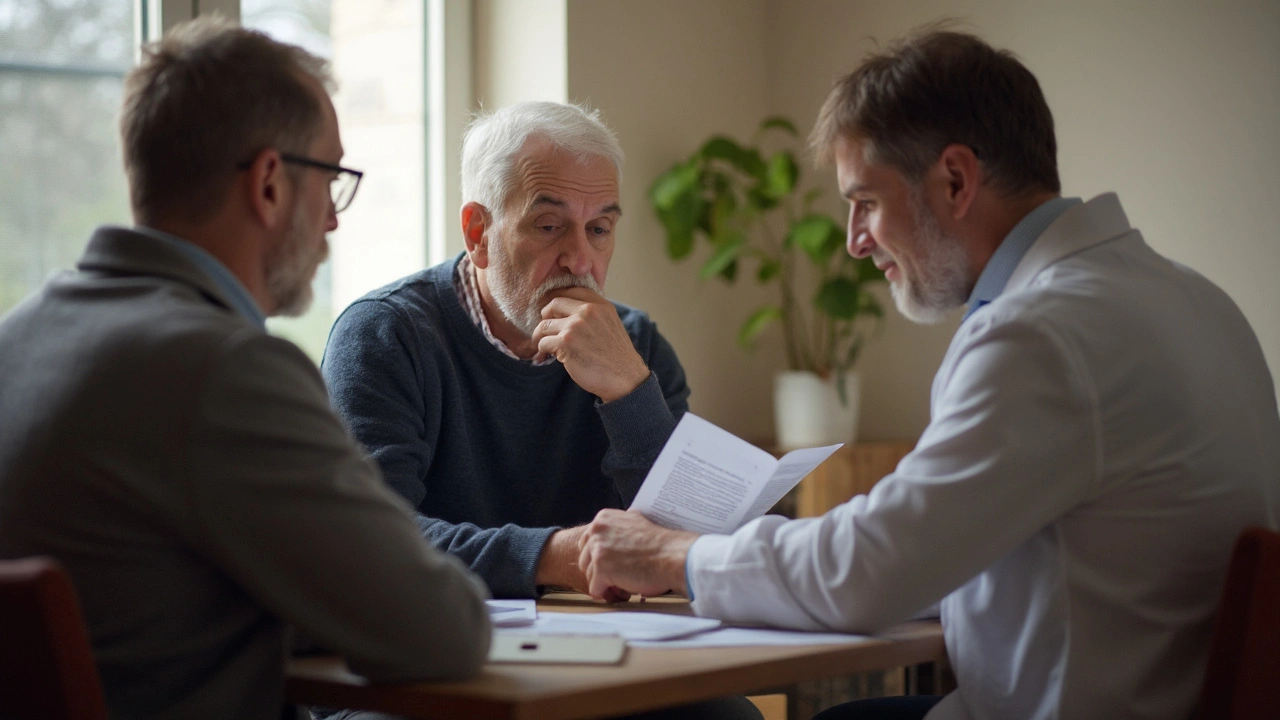Eulexin: Uses, Side Effects, and What to Expect from Flutamide
- Jun, 19 2025
- 7
All about Eulexin (flutamide): how it works, why it's used for prostate cancer, side effects to know, and honest advice on navigating treatment.
Being told you have prostate cancer hits hard. The good news: many prostate cancers grow slowly and there are several effective treatment paths. This guide explains the common choices, what side effects to expect, and the key questions that help you pick what fits your health and life.
Active surveillance means regular PSA blood tests, exams, and occasional biopsies instead of immediate treatment. It’s a common choice for low-risk cases and helps avoid side effects when the cancer looks unlikely to grow fast.
Surgery (radical prostatectomy) removes the prostate. It can cure cancer that’s still inside the gland but may cause urinary leakage or erectile problems. Surgeons use open, laparoscopic, or robotic approaches—ask about their experience and typical outcomes.
Radiation therapy targets the prostate with high-energy beams. External beam radiation and internal radiation (brachytherapy) are common. Radiation can cause bladder, bowel, and sexual side effects that sometimes improve over months.
Hormone therapy (androgen deprivation) lowers testosterone to slow cancer growth. It’s often used with radiation for higher-risk disease or to control cancer that has spread. Expect hot flashes, low libido, fatigue, and bone loss with longer use.
For advanced or aggressive cancers, chemotherapy, targeted drugs, or newer options like immunotherapy may be suggested. These are aimed at controlling disease when local treatments aren’t enough.
Urinary incontinence and erectile dysfunction are the most talked-about side effects. Pelvic floor exercises, medications, devices, and counseling can help. For bowel symptoms after radiation, stool softeners, diet changes, and specialized care make a big difference.
Bone health matters during hormone therapy—weight-bearing exercise, calcium, vitamin D, and sometimes bone-strengthening drugs are part of the plan. Fatigue is common across treatments; pacing activities and mild exercise often help.
Ask about fertility and preserving sperm before surgery or hormone therapy if you might want kids later. Mental health is important too—joining a support group or seeing a counselor helps many men and partners cope.
When to get a second opinion? If your recommended plan is major surgery, combined therapies, or you feel rushed, a second opinion from another urologist or radiation oncologist is reasonable. Different specialists can present different but valid options.
Practical tip: write down your questions before appointments, bring a friend or family member, and ask for plain-language explanations of risks and benefits. Request numbers: chances of cure, risks of incontinence or impotence, and recovery time based on the doctor’s experience.
Each case is different. Talk with your care team about what matters most to you—long-term survival, preserving sexual function, or avoiding major surgery—and pick a plan that fits your values and health. If you want, use this page as a checklist for visits and decisions.

All about Eulexin (flutamide): how it works, why it's used for prostate cancer, side effects to know, and honest advice on navigating treatment.